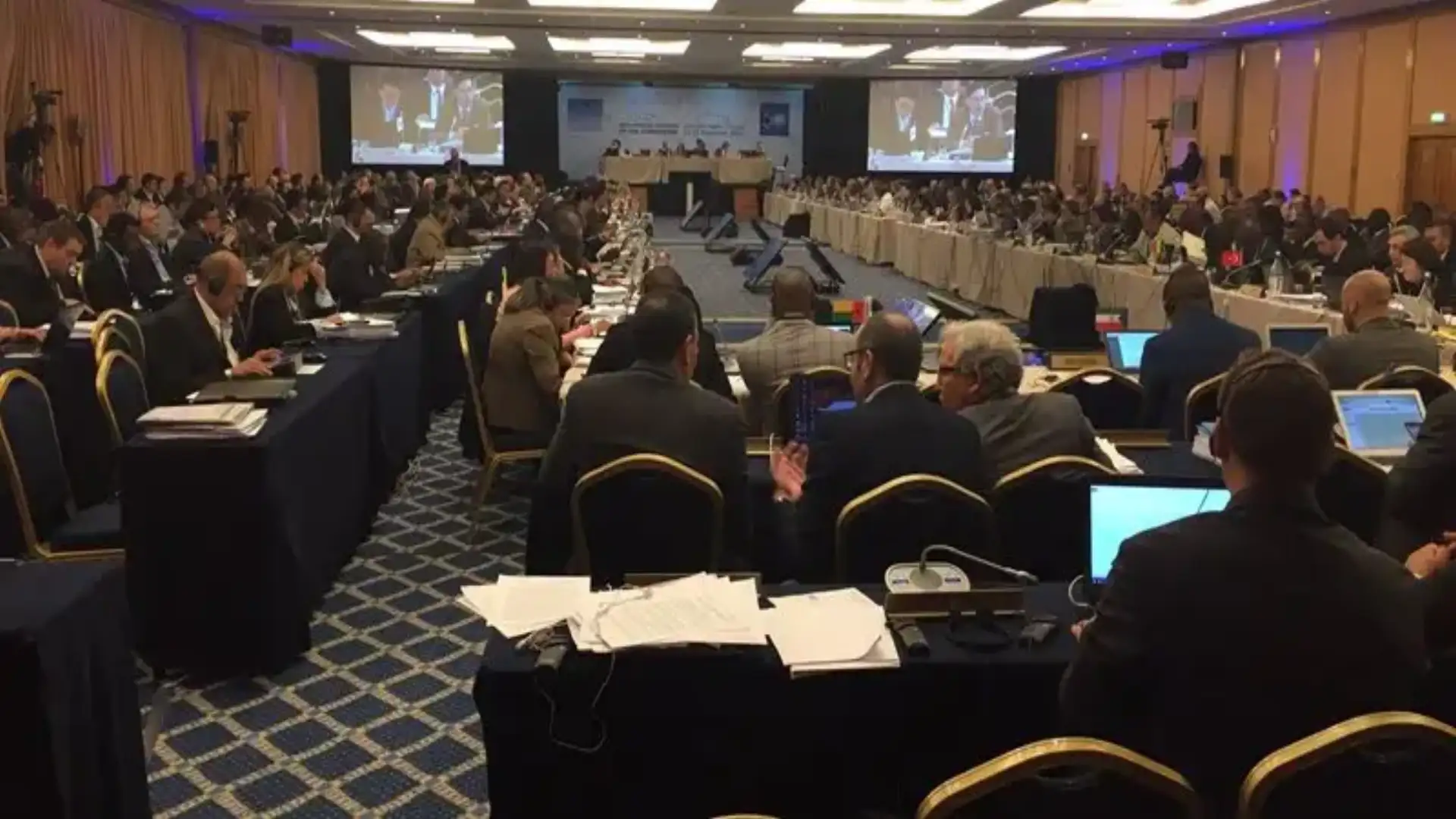
ICCAT meeting in Vilamoura under the sign of recovering species like swordfish
ICCAT meeting in Vilamoura under the sign of recovering species like swordfish
During its annual meeting, the International Commission for the Conservation of Atlantic Tuna (ICCAT) has adopted new Recommendations and Resolutions, covering many important issues related to species such as bluefin tuna, white tuna, rabil and patudo, as well as to stocks of swordfish, sharks and sailing fish. This is the first time ICCAT has adopted catch limits for stocks of some of its species, such as the Mediterranean swordfish and the Atlantic dry-cleaning plant. In addition, the report of the Second Performance Review of ICCAT was presented to the Commission, in which ICCAT was commended for having made significant progress since the first performance review, noting in particular that ICCAT had taken appropriate measures to strengthen and improve the management of its relevant species. The independent panel recognized ICCAT as a leading regional fisheries management organization. ICCAT has also agreed to assess and address in the future the recommendations made under this second performance review, and has adopted a resolution to establish an ad hoc working group to follow up on the recommendations contained in the performance review report. Vilamoura, located in the heart of the Algarve region of Portugal, hosted the 20th special meeting of the International Commission for the Conservation of Tuna from 14 to 21 November 2016. The meeting was chaired by Mr Stefaan Depypere of the European Union and was honoured with the presence of Mr Eduardo Cabrita (Deputy Minister to the Portuguese Prime Minister) and the Mayor of the Municipality of Loulé (Mr. Vitor Aleixo) at the opening ceremony. The Commission met to assess the results of the 2016 work plan, together with the current state of implementation of the existing regulatory measures, and to establish management strategies and measures for the future. During 2016, four species were the subject of a scientific assessment of complete stock: rabil (Thunnus albacares, a tropical species), white tuna (Thunnus alalunga), Atlantic sailfish (Istiophorus albicans, a species of coastal and ocean epipelagic istiphoride) and Mediterranean swordfish (Xiphias gladius, a species of ocean and sometimes coastal istiphorid). The stock of rabil and the management of fish concentration devices (DCP) were topics that focused the attention of the meeting due to its current level of exploitation, and especially because fishing with DCP is a concern. The Commission adopted a Recommendation with a complete set of provisions on catch limits for ducks and rabies, fishing capacity limits, regulation of fishing with DCP, space / time closures, control and surveillance, etc. The Commission also adopted another Recommendation that strengthens the terms of reference (broader scientific and collaborative approaches) of the Working Group on DCP established in 2015.
List of recommendations and resolutions adopted
1.Management measures for the conservation of the Atlantic dry-cleaning plant caught in association with ICCAT fisheries
2.Multiannual recovery plan for the swordfish of the Mediterranean
3. Multiannual recovery plan for the North Atlantic swordfish
4. Multiannual recovery plan for swordfish in the South Atlantic
5.Multiannual recovery plan for Atlantic Sailfish
6.Recovery plan for blue needle and white needle stocks
7.Recovery plan for bluefin tuna in the West Atlantic
8.Multiannual recovery plan for bluefin tuna in the East Atlantic and the Mediterranean
9.South white tuna catch limits for the period 2017- 2020
10.Minimum standards for scientific observer programmes on fishing vessels
11.Review of compliance with conservation and management measures related to sharks caught in association with fisheries
12.Amend communication deadlines to facilitate an effective and efficient compliance process
13.Recommendation on transhipment
14.Recommendation to clarify and complement the process of requesting compliance capacity-building assistance
15.Recommendation for the development of an online communication system
16.Recommendation for the establishment of an ad hoc working group on fish concentration devices
17.Establish an ad hoc working group to follow up on the second performance review
18.Facilitating an effective and efficient compliance process
19.Actions to improve compliance and cooperation with ICCAT measures
20.Resolution on ecosystems that are important and unique to ICCAT species
21.Resolution on the third meeting of the Standing Working Group to improve dialogue between fisheries managers and scientists
22.ICCAT recommendation for a multi-year conservation and management programme for tropical tuna
© 2024 Nautica Digital Europe - www.nauticadigital.eu











